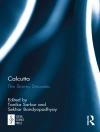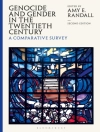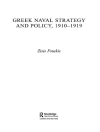Professor Mary Lindemann inspired several generations of historical researchers in early modern history and culture. She has served as president of the German Studies Association and the American Historical Association and is the author of pathbreaking scholarly work in the history of medicine, urban space, diplomacy, and of women. In honor of her scholarship, service, and dedication, Healing and Harm gathers a group of leading scholars that includes her students, contemporaries, and those who have been inspired by her work to continue Lindemann’s prolific arguments and observations on early modern, central European and German history and culture.
Innehållsförteckning
List of Illustrations
Preface
Introduction
Erica Heinsen-Roach, Stephen A. Lazer, and Daniel Riches
Part I: Cities and Landscapes
Chapter 1. Was the Early Modern City “a Space”? Reflections on a Contemporary Trend
Yair Mintzker
Chapter 2. Capitalism and Public Space in The Netherlands, or Why There Are No Monumental Squares in The Netherlands
Rudolf Dekker and Tessel Dekker
Chapter 3. Visiting the Resort: Gambling, Medicine, Tourism and the Nineteenth Century European Casino
Jared Poley
Part II: Science and Medicine
Chapter 4. Midwives and Medical Knowledge in Early Modern Germany
Merry Wiesner-Hanks
Chapter 5. Imagining Peace during the Thirty Years’ War
Sigrun Haude
Chapter 6. Water’s Dangers: Swimming and Drowning in the Early Modern Era
Alexander Schunka
Chapter 7. What I Learned from a Self-Confessed Archive Junkie: Searching for Black Germany in Nazi-Era Archives
Julia Roos
Part III: Crime and Authority
Chapter 8. Theatrum Poenarum: Psychological Space and Physical Torment in Early Modern Germany
W. David Myers
Chapter 9. Church Law, Church Discipline, and the German Early Enlightenment
Terence Mc Intosh
Chapter 10. Enlightenment Public as Judge: On the Fragments Controversy between Gotthold Ephraim Lessing and Johann Melchior Goeze
William Boehart
Chapter 11. Narratives in Competition: Solving the Murder of the Baroness d’Ertrick in Basel, 1707
Stephen A. Lazer
Part IV: Diplomacy and Statecraft
Chapter 12. Inclusion, Exclusion, and Violence in Diplomacy
Daniel Riches
Chapter 13. Diplomacy, Violence and Early Modern State Formation: Gottorp’s 1635 Embassy to Persia
Indravati Felicité
Chapter 14. Many Pleasant Tales: Francisci’s Acerra Exoticorum (1672–1674)
Gerhild Scholz Williams
Chapter 15. The French Embassies and The French Military Expedition in Siam (Thailand) in The Age of Louis XIV
Lucien Bély
Chapter 16. Violation and Satisfaction: Great Britain-Hanover and Brandenburg-Prussia’s Appeals to an Enlightenment Public in the Diplomatic Crisis of 1729-1730
Benjamin Marschke
Part V: Women, Sexuality, and Gender
Chapter 17. Love and Violence in the Italian Renaissance Imagination
Guido Ruggiero
Chapter 18. Making Marriages Mixed: Religious Pluralization, Ritual, and the Formation of Intra-Christian Marriage Barriers in Late Sixteenth- and Early Seventeenth-Century Germany
David Martin Luebke
Chapter 19. Burdens of State: Viewing the Dynastic Widow as a Political and Economic Factor
Jill Bepler
Chapter 20. Autonomy and Captivity: The Case of Maria ter Meetelen in Morocco, 1731-1743
Erica Heinsen-Roach
Chapter 21. Idioms of Distress in East German Petitions for Abortion
Donna Harsch
Chapter 22. Women, Witches, and Collective Memory
Jason Coy
Afterword: On Humanism and Irreverence, a Tribute to Mary Lindemann
Suzanne Marchand
Index
Om författaren
Jared Poley is Professor and Chair of the History Department at Georgia State University. He is the author and co-editor of books such as The Devil’s Riches: A Modern History of Greed (2016) Money in the German-speaking Lands (2017).
Daniel Riches is an Associate Professor and Director of Graduate Studies in the Department of History at the University of Alabama, where he has worked since receiving his Ph D from the University of Chicago in 2007.












